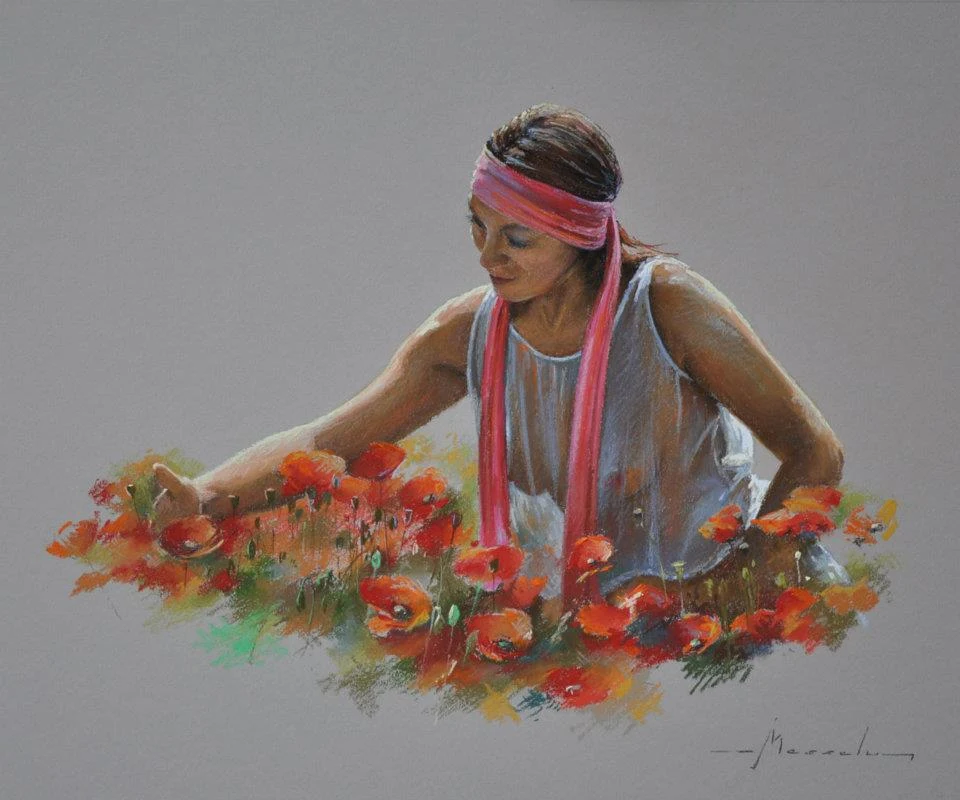Home » Tutti i post

Nguyen Tuan, 1963 | Figurative sculptor

Camille Pissarro | Rue Saint-Honoré, in the afternoon, 1897
Rue Saint-Honoré, dans l'après-midi. Effet de pluie ("Rue Saint-Honoré, in the afternoon. Effect of rain") is an 1897 oil painting by Camille Pissarro.
The work was made towards the end of Pissarro's career, when he abandoned his experiments with Pointillism and returned to a looser Impressionist style.
It is part of a series of works that Pissarro made in 1897-98 from a window of the Grand Hôtel du Louvre, looking down across the edge of the Place du Théâtre Français (now the Place André-Malraux) and along the rue Saint-Honoré, portraying the people, carriages and buildings, the trees, fountains and streetlamps, in an early afternoon shower of rain.
Camille Pissarro | Rue Saint-Honoré, in the afternoon. Effect of rain, 1897 | Museo Thyssen-Bornemisza, Madrid

Johan Messely, 1953 | The Secret Gardens
Johan Messely is a painter from Belgium.
Johan Messely grew up in the artistic world of his father Paul Messely, also a painter, who served as his great example and motivation.
After his studies into technical engineering and later photography, Johan settled as a professional photographer in Menen, Belgium, but eventually decided to turn painting from being just a hobby into his main occupation.


The Belle Époque: A Dream of Times Gone by Vittorio Corcos
Italian painter Vittorio Matteo Corcos (1859-1933) was known for genre works depict winsome and finely dressed young men and women, in moments of repose and recreation.
Born in Livorno, Italy, he studied drawing and painting at the Academia di Belle Arti in Florence under Enrico Pollastrini.
He then traveled to Paris where he met Léon Bonnat, and signed a contract with the Goupil and Cie, he was able to supplement his income as a portrait painter with illustrations for magazines.

Mozart | Rondo alla Turca, 1783
The Piano Sonata No. 11 in A major, K. 331 / 300i, by Austrian classical composer Wolfgang Amadeus Mozart (1756-1791) is a piano sonata in three movements.
The sonata was published by Artaria in 1784, alongside Nos. 10 and 12 (K. 330 and K. 332).
The third movement of this sonata, the "Rondo alla Turca", or "Turkish March", is often heard on its own and regarded as one of Mozart's best-known piano pieces.

Théodore Frère | Orientalist painter
Charles-Théodore Frère (1814-1888) was a French Orientalist painter.
His younger brother, Pierre-Édouard, and his nephew and namesake, Charles Edouard Frère, were also painters.
Painter of historical subjects, genre scenes, local scenes, landscapes (with figures) and seascapes; watercolourist and draughtsman. Orientalist.
The son of a Paris music publisher, Frère studied at the École des Beaux-Arts under Léon Cogniet and Camille Roqueplan.

Lorenzo Lotto | The Recanati Polyptych, 1506-1508
The Recanati Polyptych is a painting by the Italian Renaissance painter Lorenzo Lotto, executed in 1506-1508 and housed in the Civic Museum of Villa Colloredo Mels, Recanati, Italy.
The work is dated and signed Laurent[ius] Lotus MDVIII.
Lotto began to work on the piece in 1506 as a devotional for the church of San Domenico in Recanati.
Iscriviti a:
Post (Atom)



.jpg)
.jpg)



